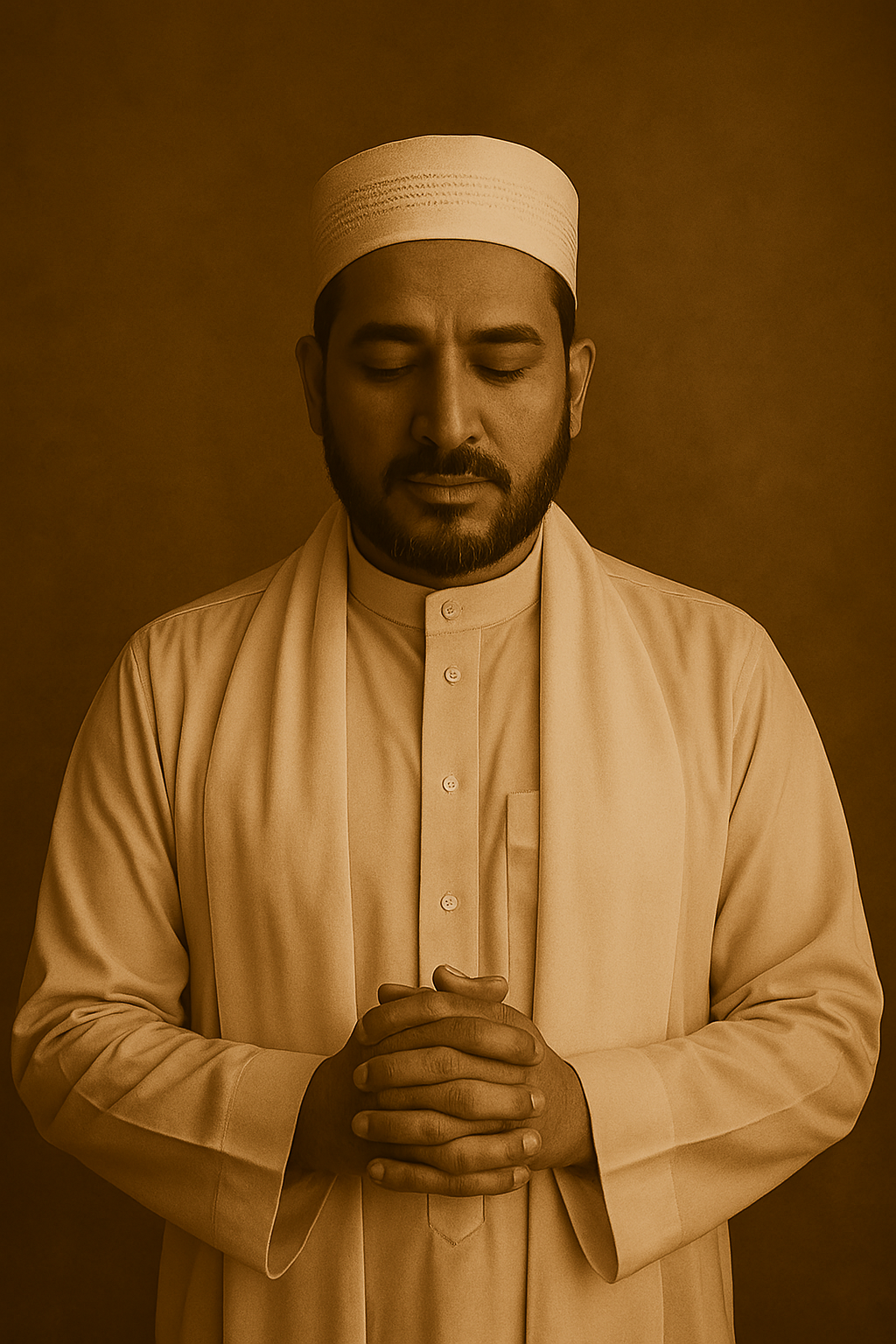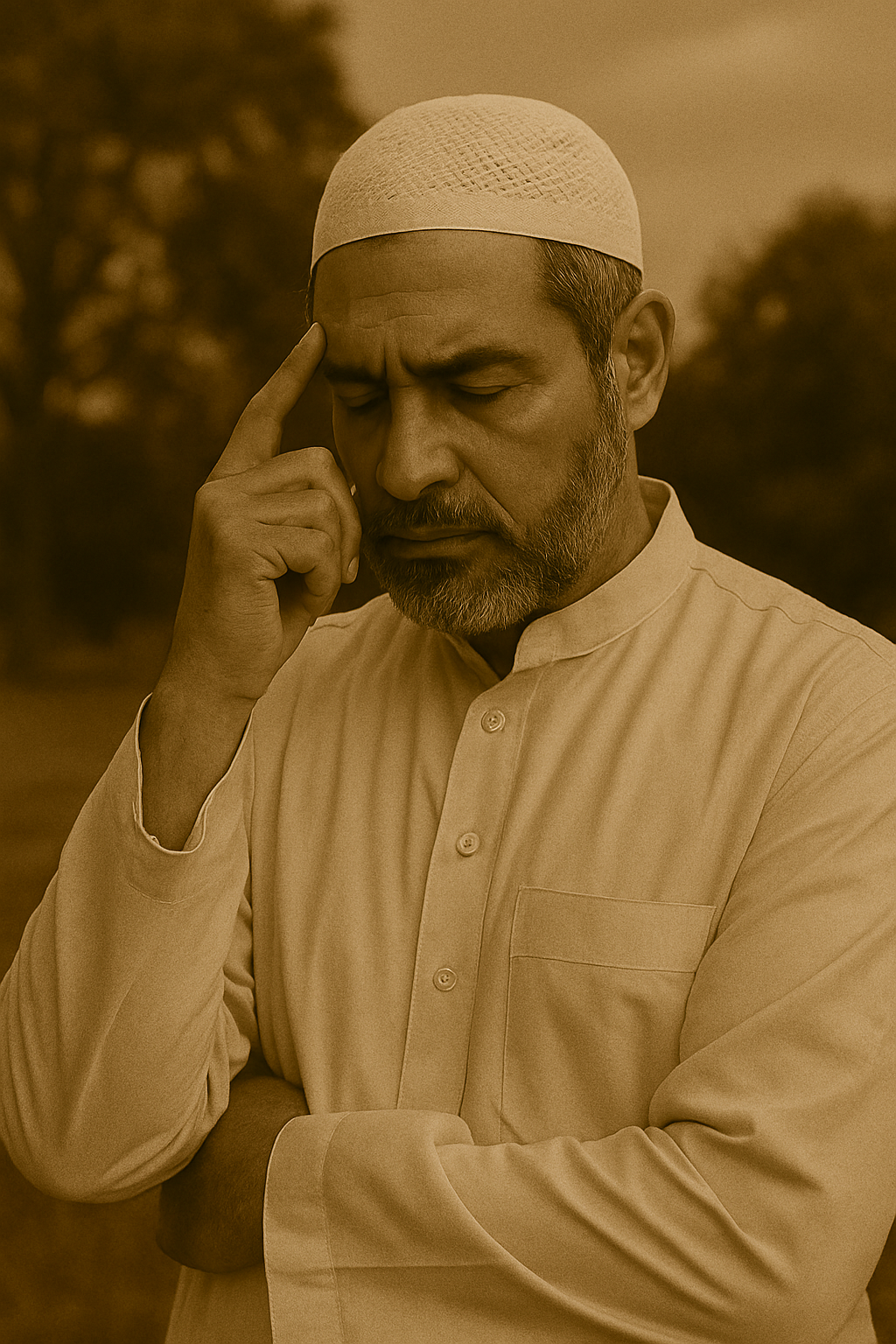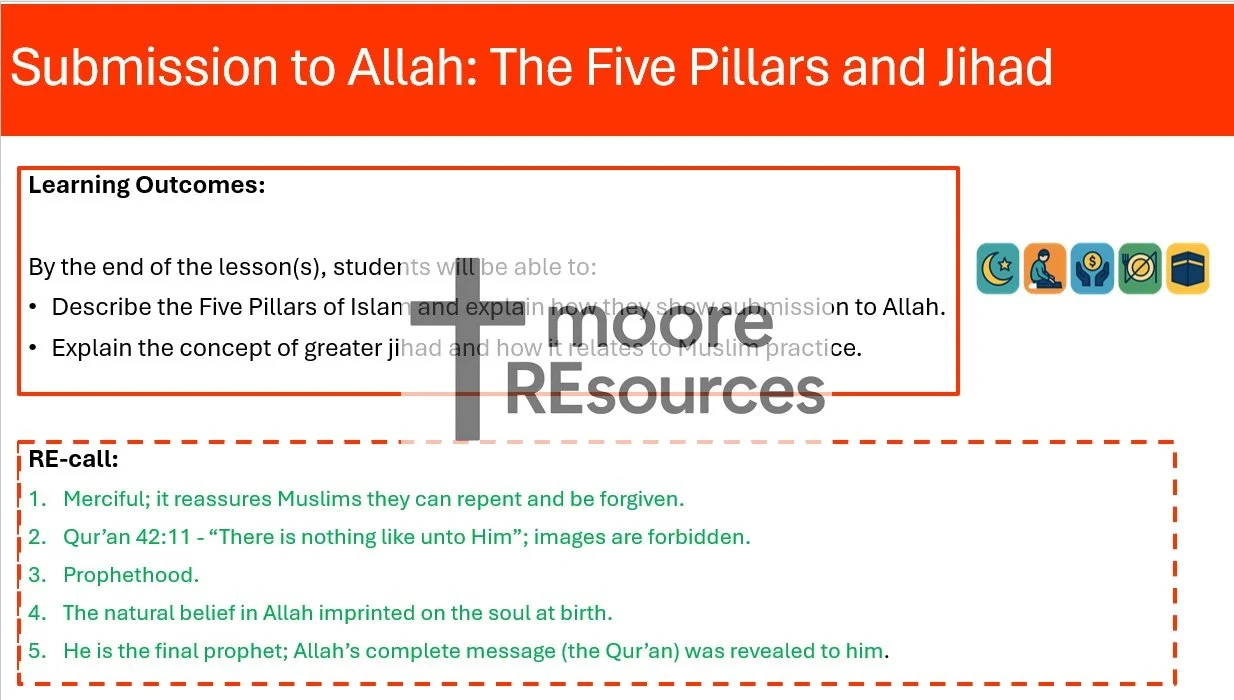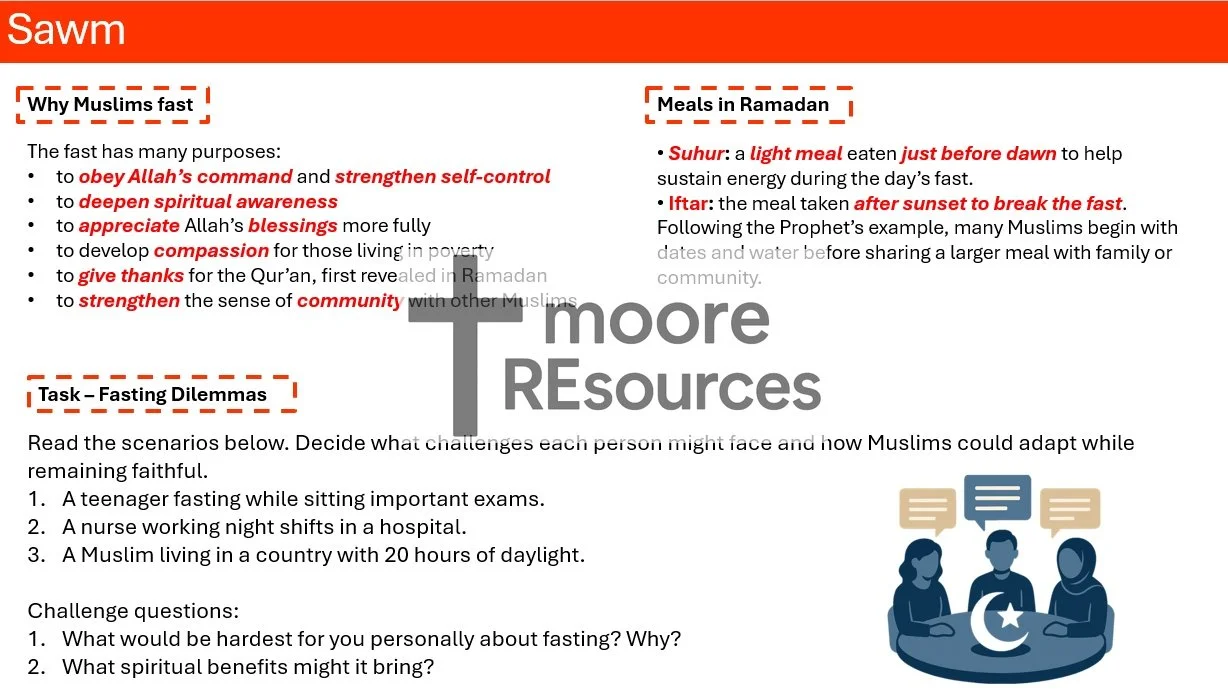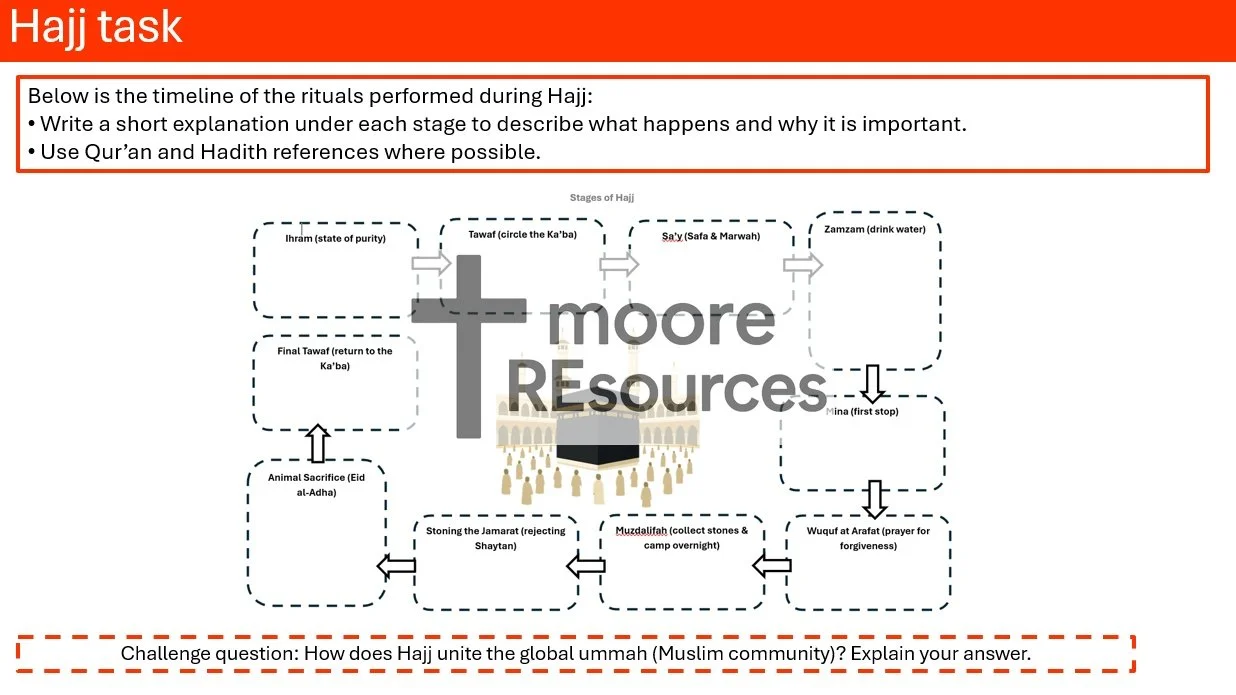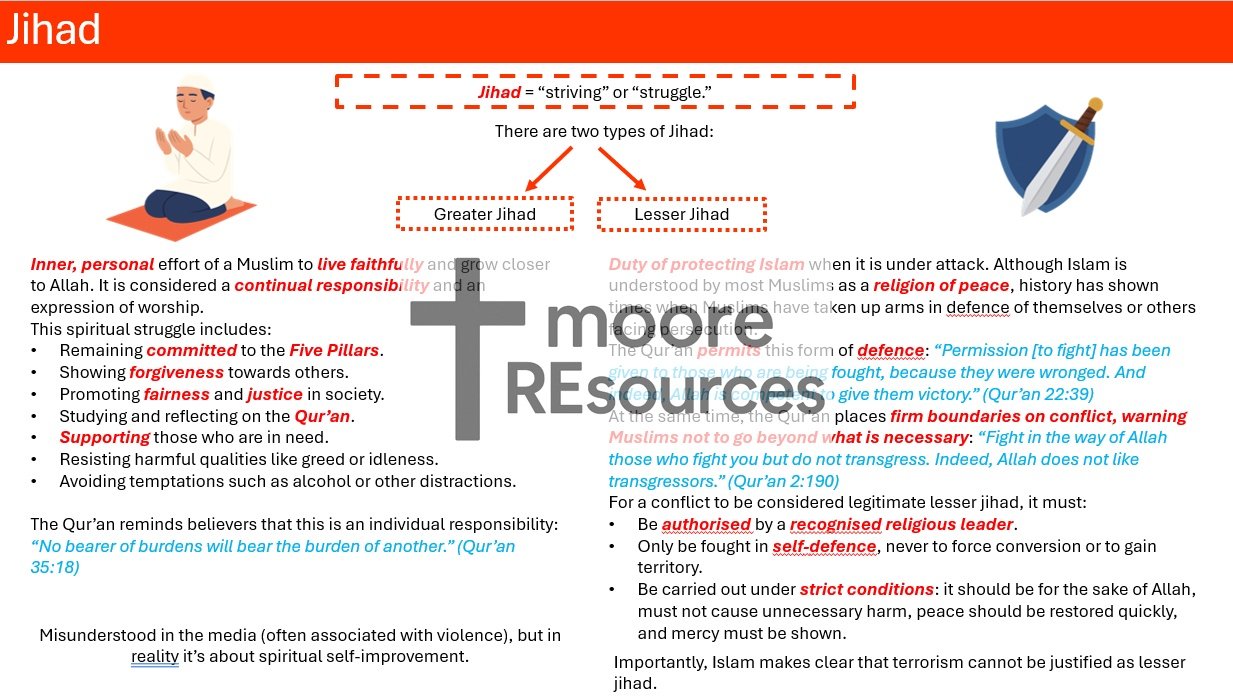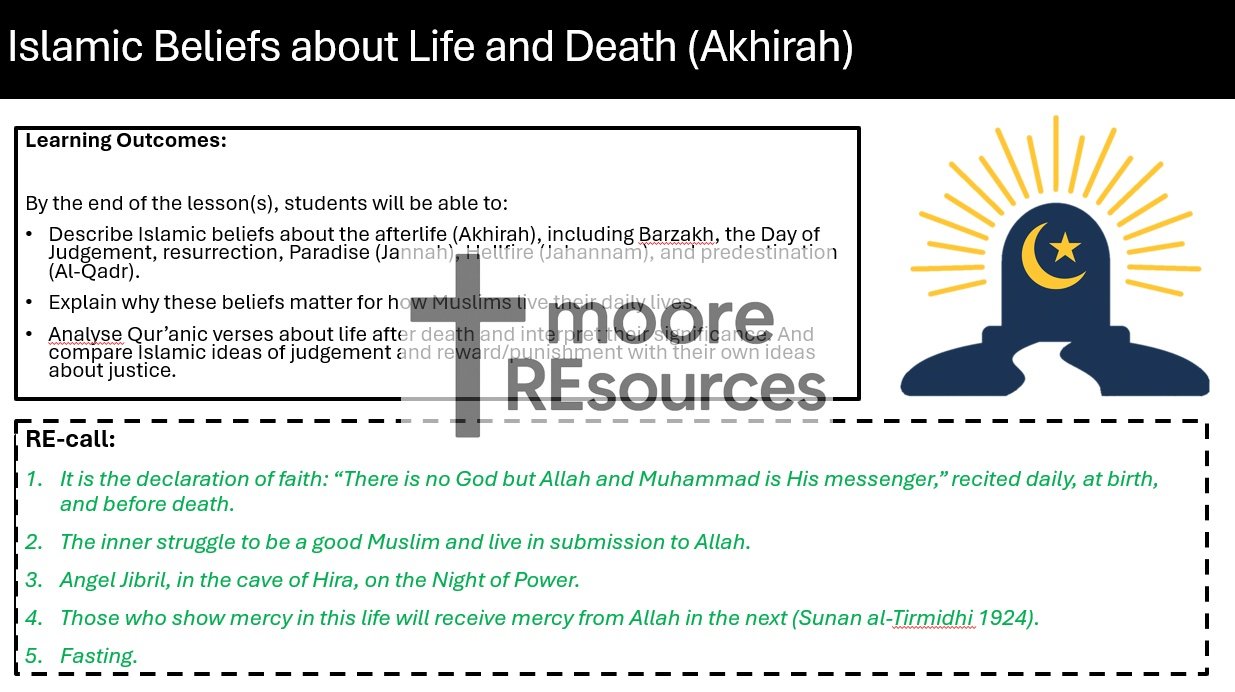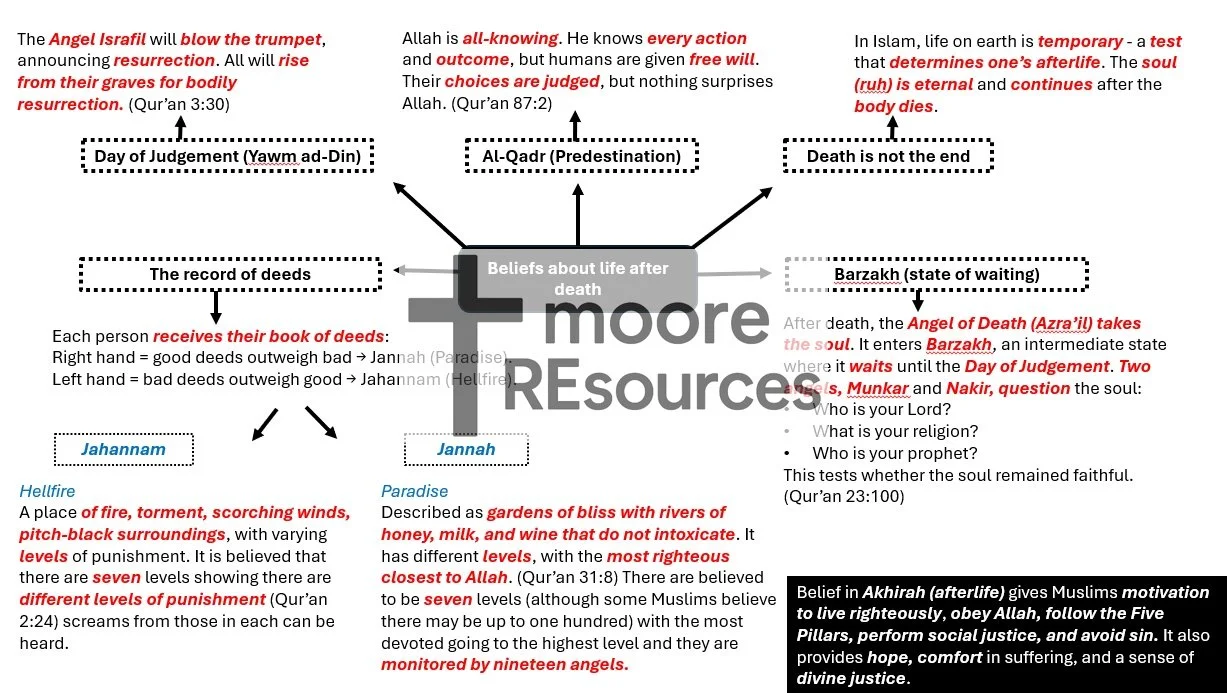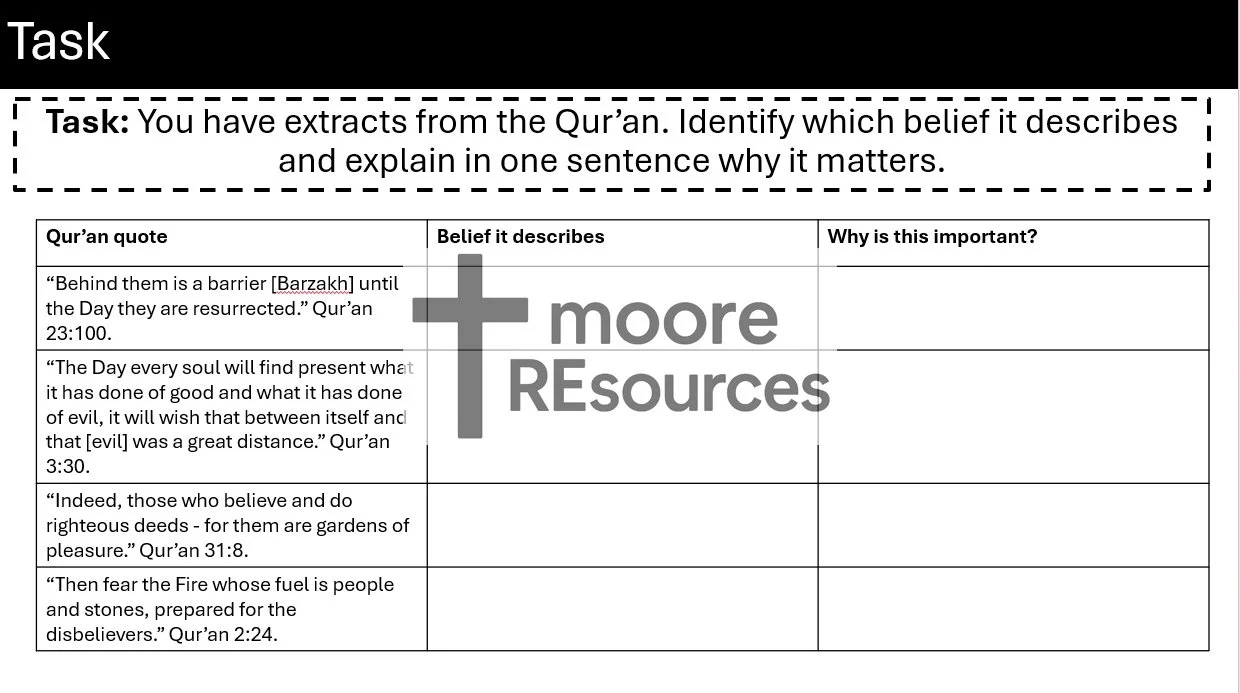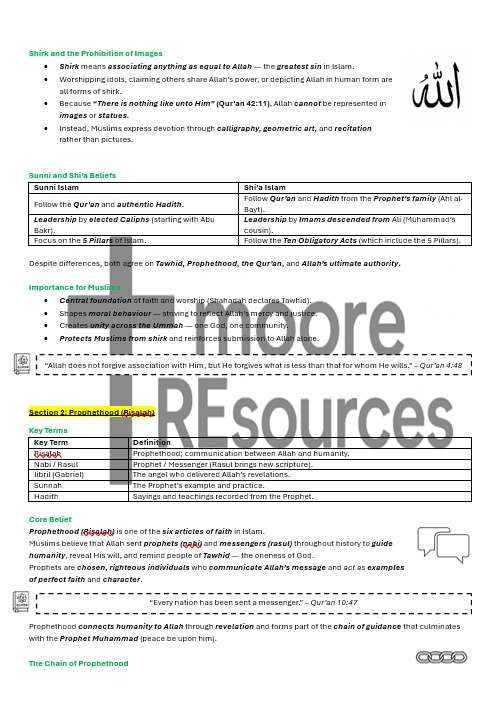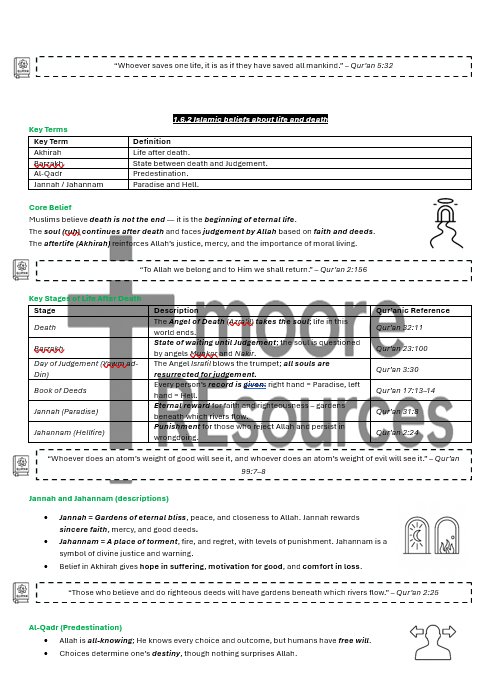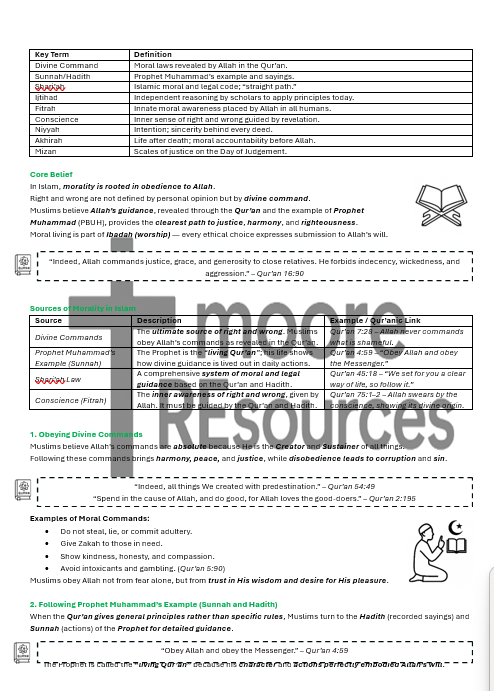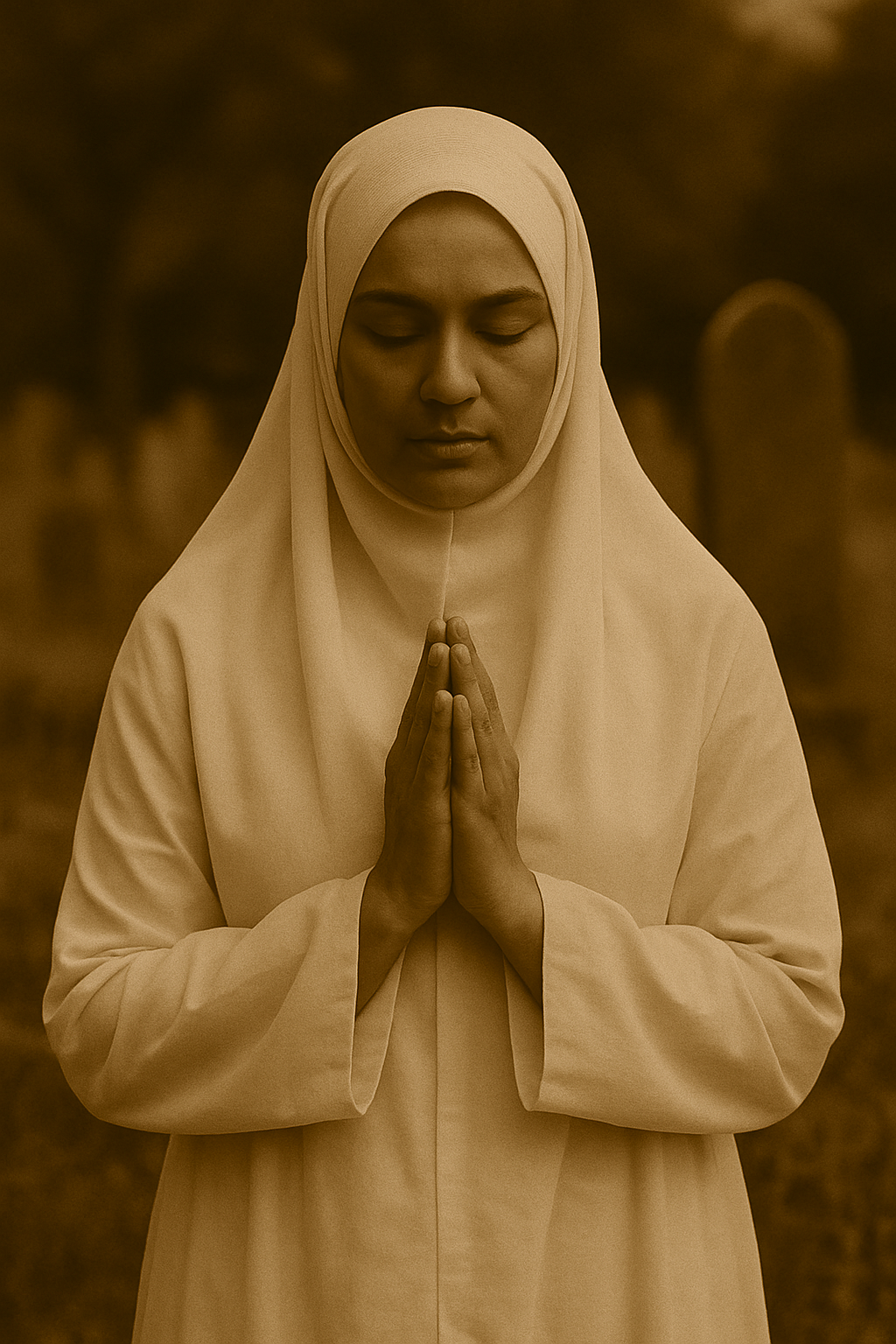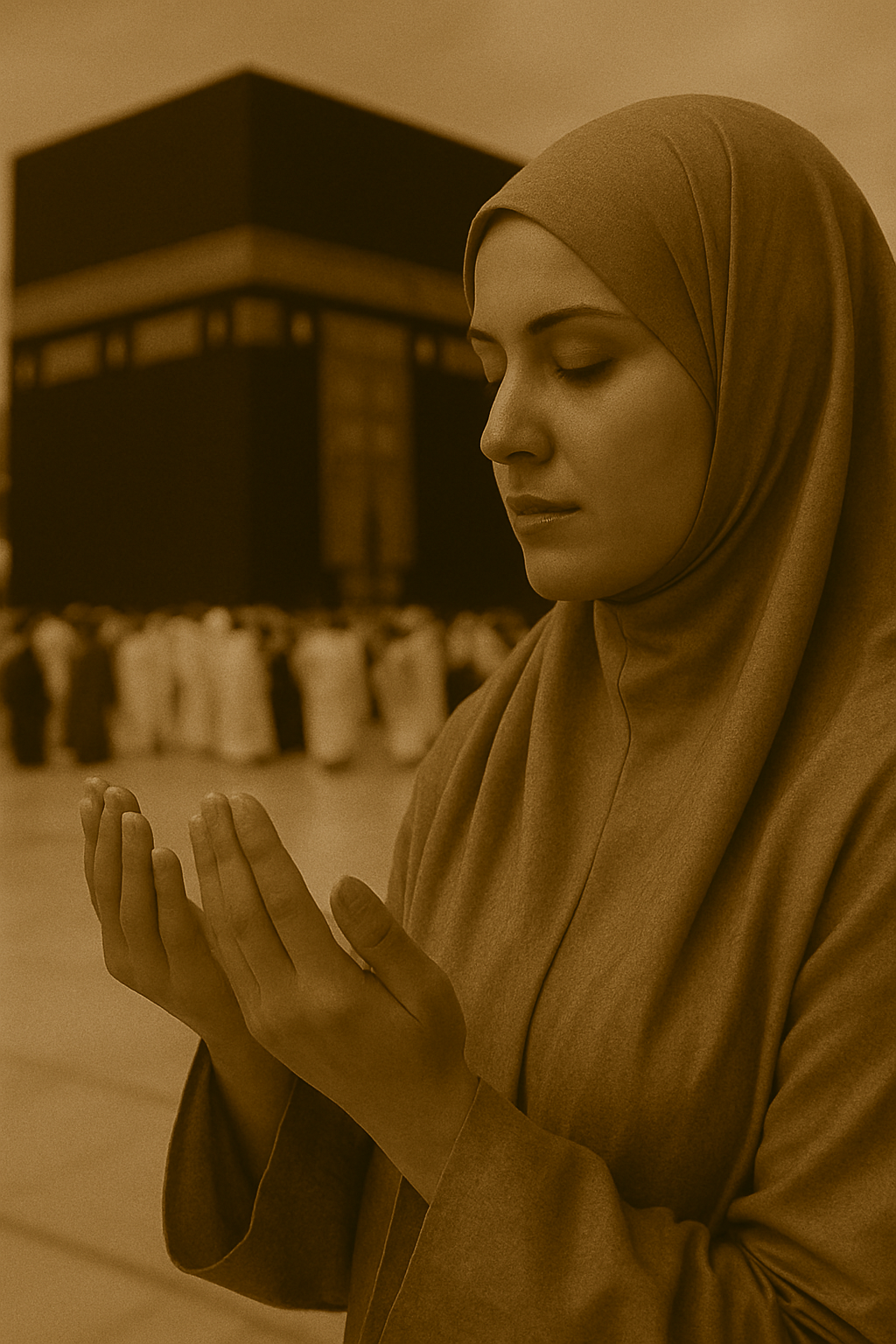 Image 1 of 4
Image 1 of 4

 Image 2 of 4
Image 2 of 4

 Image 3 of 4
Image 3 of 4

 Image 4 of 4
Image 4 of 4





1.71 Islamic Identity, Belonging and Practices
Help students explore how Muslims express religious identity and shared belonging with this engaging Lesson Pack for 1.71: Islamic Identity, Belonging and Practices. Fully aligned with the WJEC Religious Studies 2025 specification, this resource introduces the symbolic, communal, and devotional practices that reflect faith in everyday life and on life-changing spiritual journeys.
Learners Will Understand:
Faith, Community, and Belonging
The importance of belonging to a worshipping community
How shared purpose, direction, and faith create strong bonds among Muslims worldwide
Pilgrimage as a Symbol of Commitment
Pilgrimage (Hajj) as a central expression of devotion and unity
Visiting significant sites to honour key figures and moments in Islamic history
Developing spiritual focus and experiencing the global Ummah
Key pilgrimage locations: Mount Arafat and the pillars at Mina
Symbolic Expressions of Identity
How faith is made visible through modest dress and dietary observance
The spiritual and cultural significance of the burkha, hijab, and niqab
Following halal dietary laws as a way of maintaining faith through daily choices
Suitable for:
WJEC GCSE Religious Studies (2025)
Islam units at KS4
Core RE, revision, and homework tasks
Cover lessons and remote learning
Help students explore how Muslims express religious identity and shared belonging with this engaging Lesson Pack for 1.71: Islamic Identity, Belonging and Practices. Fully aligned with the WJEC Religious Studies 2025 specification, this resource introduces the symbolic, communal, and devotional practices that reflect faith in everyday life and on life-changing spiritual journeys.
Learners Will Understand:
Faith, Community, and Belonging
The importance of belonging to a worshipping community
How shared purpose, direction, and faith create strong bonds among Muslims worldwide
Pilgrimage as a Symbol of Commitment
Pilgrimage (Hajj) as a central expression of devotion and unity
Visiting significant sites to honour key figures and moments in Islamic history
Developing spiritual focus and experiencing the global Ummah
Key pilgrimage locations: Mount Arafat and the pillars at Mina
Symbolic Expressions of Identity
How faith is made visible through modest dress and dietary observance
The spiritual and cultural significance of the burkha, hijab, and niqab
Following halal dietary laws as a way of maintaining faith through daily choices
Suitable for:
WJEC GCSE Religious Studies (2025)
Islam units at KS4
Core RE, revision, and homework tasks
Cover lessons and remote learning

